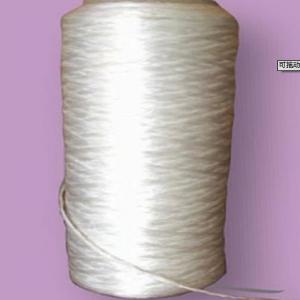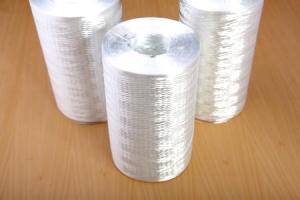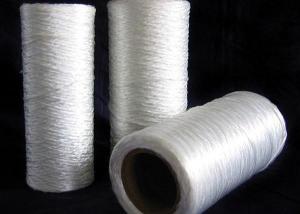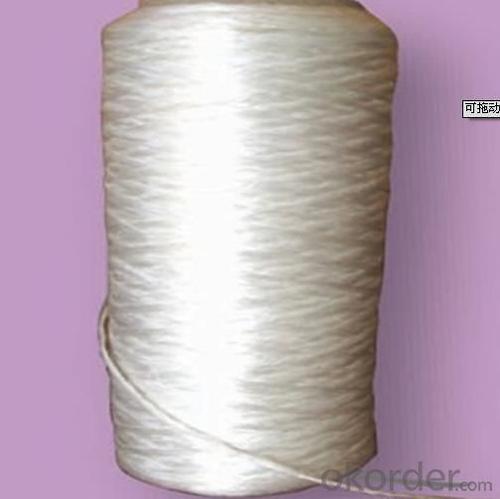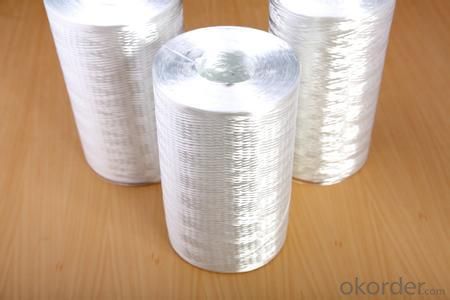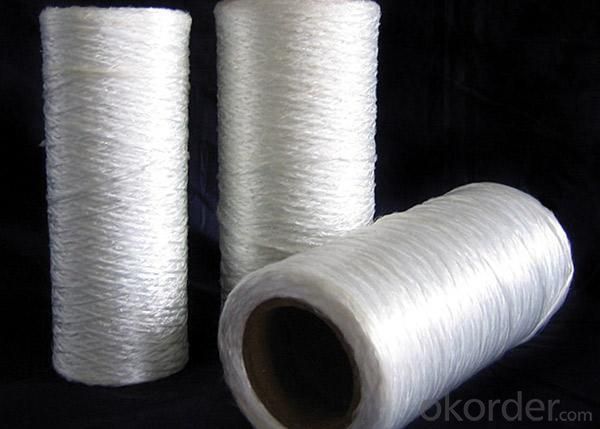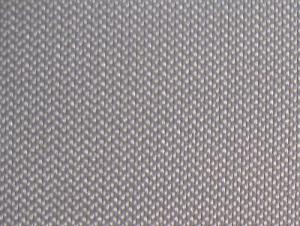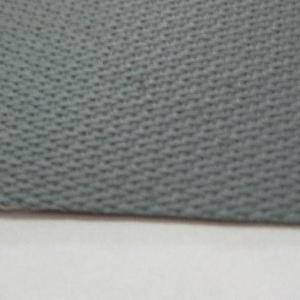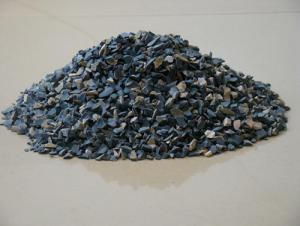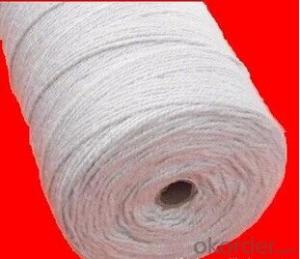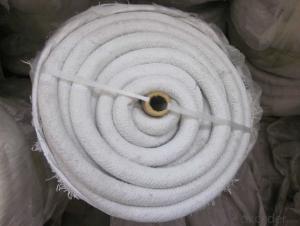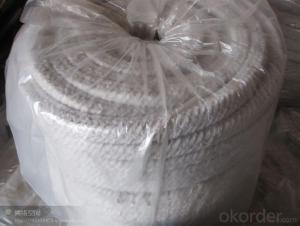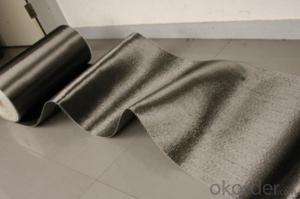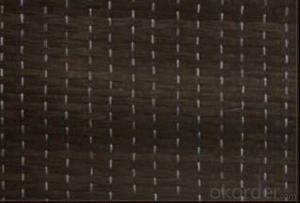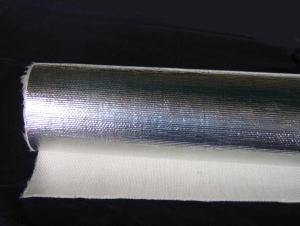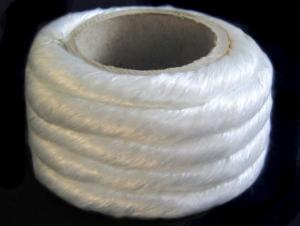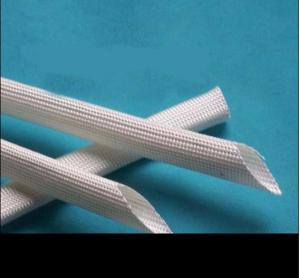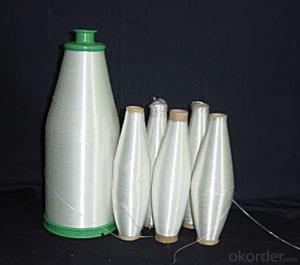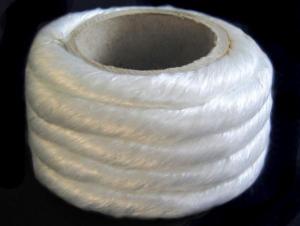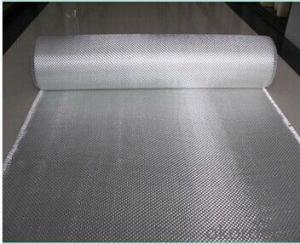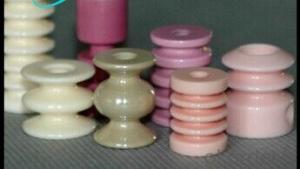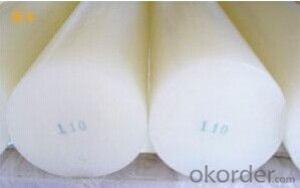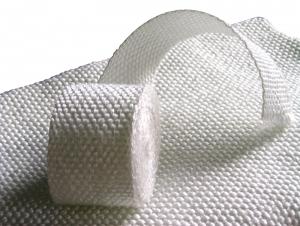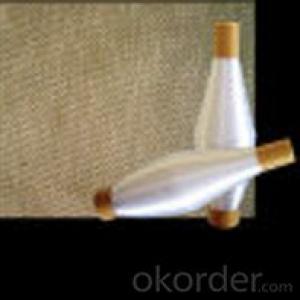Glass Fiber Textiles Textured Fiberglass Yarn
- Loading Port:
- China Main Port
- Payment Terms:
- TT or L/C
- Min Order Qty:
- 10 Tons kg
- Supply Capability:
- 2*20FCL Per Month kg/month
OKorder Service Pledge
OKorder Financial Service
You Might Also Like
General Information of Textured Fiberglass Yarn
CMAX textured fiberglass textiles are made from textured E-glass fiber yarn which features bulky and resilient with high thermal insulation property. Diversified forms are available such as yarn, cloth, tape, rope, sleeving, etc.
Application of Textured Fiberglass Yarn
Textured fiberglass textiles are cost effective products used at high temperature up to 550º C. It exhibits properties of low thermal conductivity, electricity insulation and corrosive resistance.
Textured fiberglass textiles can be performed in process industries as fire curtains, gaskets or sealing in kiln, furnace or heaters etc. Application has been extended to the building industry as reinforcement material.
Chemical Analysis
SiO2: 54.1%
Al2O3: 14.6%
CaO: 16.6%
MgO: 4.6%
B2O3: 8.8%
Na2O+K2O: ≤ 0.8%
Fe2O3:<0.5%
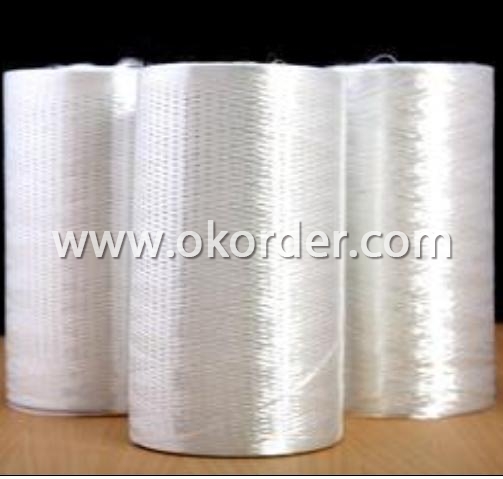
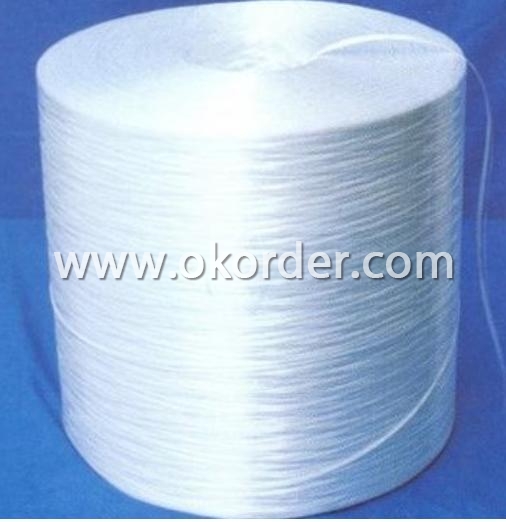
- Q: Are glass fiber textiles resistant to solvents?
- Yes, glass fiber textiles are generally resistant to solvents.
- Q: Can glass fiber textile be used indoors?
- Yes, glass fiber textile can be used indoors. Glass fiber textiles, also known as fiberglass textiles, are versatile materials that can be used in various indoor applications. They are commonly used for insulation, soundproofing, and as reinforcement in walls, ceilings, and floors. Glass fiber textiles have excellent thermal and acoustic properties, making them suitable for creating a comfortable and energy-efficient indoor environment. Additionally, they are fire-resistant and do not release toxic gases when exposed to high temperatures, making them safe for indoor use. Overall, glass fiber textiles are widely used in construction and interior design industries to enhance the performance and aesthetics of indoor spaces.
- Q: Are glass fiber textiles resistant to fading and discoloration?
- Yes, glass fiber textiles are highly resistant to fading and discoloration.
- Q: Is glass fiber textile resistant to fire?
- Yes, glass fiber textile is resistant to fire.
- Q: Can glass fiber textiles be ironed?
- Glass fiber textiles cannot be ironed; doing so may result in melting, burning, or deformation. It is crucial to adhere to the manufacturer's care instructions, as they typically advise against exposing these textiles to high heat sources like irons.
- Q: How do glass fiber textiles affect the dimensional stability of fabrics?
- Glass fiber textiles can significantly improve the dimensional stability of fabrics. The incorporation of glass fibers into the fabric structure enhances its resistance to stretching, shrinking, and distortion. This increased stability is due to the high tensile strength and low elasticity of glass fibers, which help to maintain the shape and structure of the fabric even under various stress conditions.
- Q: Can glass fiber textiles be used in reinforcement composites?
- Glass fiber textiles have the capability to be utilized in reinforcement composites. Renowned for their exceptional strength and stiffness, glass fibers are a favored choice for reinforcing materials in composites. By weaving or knitting glass fibers into a fabric, glass fiber textiles offer additional advantages such as flexibility, easy handling, and enhanced impact resistance. These textiles can be embedded within a matrix material, like resin or polymer, to form a reinforced composite structure. The inclusion of glass fiber textiles aids in the distribution of the load across the entire composite, ultimately elevating its strength and durability. Their widespread application encompasses industries such as automotive, aerospace, construction, and sports equipment manufacturing.
- Q: Can glass fiber textile be used in insulation blankets?
- Indeed, insulation blankets can utilize glass fiber textile. These textiles, widely employed in insulation materials, offer remarkable attributes such as elevated thermal resistance, exceptional fire resistance, and low thermal conductivity. Their effectiveness lies in their ability to impede heat transfer, rendering them an ideal choice for insulation blankets. By capturing air pockets within their fibers, glass fiber textiles effectively reduce heat transfer through conduction and convection. Moreover, these textiles are lightweight, effortless to manipulate, and readily moldable into diverse shapes, including blankets, which accounts for their immense popularity in insulation applications.
- Q: Are glass fiber textiles resistant to moisture absorption in humid environments?
- Yes, glass fiber textiles are highly resistant to moisture absorption in humid environments. Glass fibers are known for their excellent moisture resistance properties, as they do not absorb water molecules. This characteristic makes them an ideal material for applications in humid environments, where moisture absorption can lead to degradation and reduced performance of the textile. Glass fiber textiles are commonly used in industries such as marine, aerospace, and construction, where exposure to high humidity and moisture is common. Their resistance to moisture absorption ensures their durability and longevity even in such conditions.
- Q: What are the advantages of using glass fiber textiles over other materials?
- Glass fiber textiles have several advantages over other materials. Firstly, they are extremely strong and durable, making them suitable for a wide range of applications. They have a high tensile strength and can withstand harsh environmental conditions, making them ideal for use in construction, aerospace, and automotive industries. Secondly, glass fiber textiles are resistant to heat, chemicals, and corrosion, which enhances their longevity and performance. Additionally, they are lightweight and flexible, allowing for easier installation and manipulation. Lastly, glass fiber textiles have excellent insulation properties, providing thermal and acoustic insulation, which can contribute to energy efficiency and noise reduction. Overall, the advantages of using glass fiber textiles make them a preferred choice for various industries.
Send your message to us
Glass Fiber Textiles Textured Fiberglass Yarn
- Loading Port:
- China Main Port
- Payment Terms:
- TT or L/C
- Min Order Qty:
- 10 Tons kg
- Supply Capability:
- 2*20FCL Per Month kg/month
OKorder Service Pledge
OKorder Financial Service
Similar products
Hot products
Hot Searches
Related keywords
